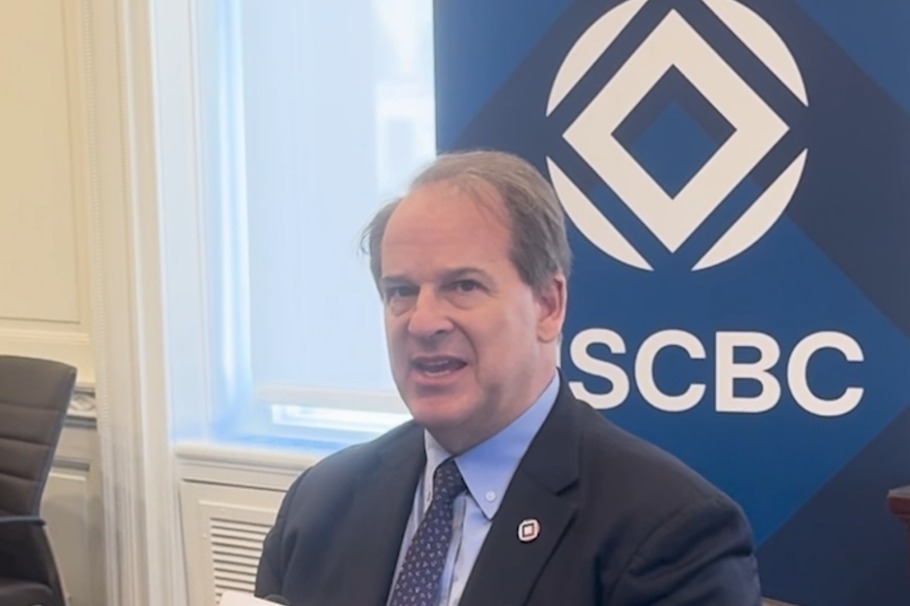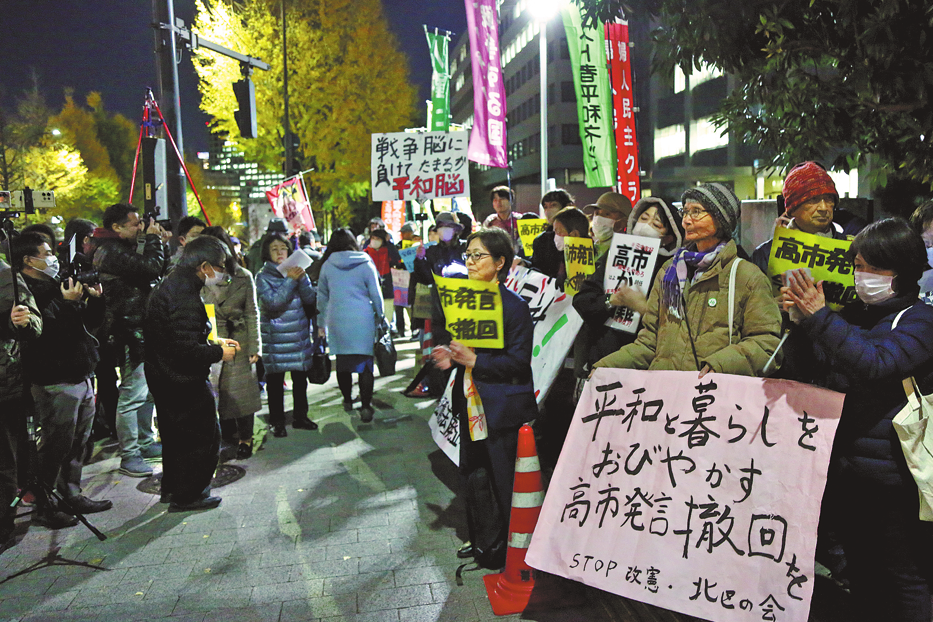Runaway inflation filtered by politics


With another pop in US inflation reported on Tuesday, the debate will continue whether it is "Putin's price hike" or "Bidenflation".
The price of gasoline definitely has accelerated since Russia's incursion into Ukraine on Feb 24, but food and energy prices already were on an upward trajectory before that day.
The Labor Department reported Tuesday that its Consumer Price Index jumped 8.5 percent in March from 12 months earlier, the highest year-over-year increase since 1981.
From February to March, inflation rose 1.2 percent, the biggest month-to-month increase since 2005. Gasoline prices made up more than half of the rise, soaring 48 percent in the past 12 months.
Used-car prices were up 35 percent over the past year, although they fell in February and March. Grocery prices were 10 percent higher, including 18 percent increases for bacon and oranges.
So-called core inflation, which excludes volatile food and energy prices, rose 0.3 percent from February to March, the smallest monthly rise since September. Over the past year, though, core prices are up 6.5 percent, the most since 1982.
The oft-cited reasons for the initial rise in inflation were supply chain disruptions stemming from the COVID-19 pandemic. The subsequent resurgence of consumer demand — after the peak of the pandemic and its accompanying shutdowns — added to price pressures. Western sanctions against Russian energy sources primed gasoline prices even more.
White House press secretary Jen Psaki, speaking onboard Air Force One with President Joe Biden on Tuesday en route to Iowa, noted that "core CPI did go down this month. I don't want to overcrank that, but that is certainly also data we look at.
"And we noted that — our expectation about headline CPI — so that the American people, through all of you and whatever way you chose to report it, would understand we expected it to be elevated because of (Russian President Vladimir) Putin's invasion, because of the impact on energy prices, which they're certainly experiencing every day," she said.
"Inflation and gas prices were already bad, and it's a difficult task to pin their rise on a war that isn't front-and-center for most Americans," wrote Aaron Blake in The Washington Post on March 31.
"Evidence now suggests the narrative is coming up well short. Domestic pricing concerns are far outpacing Ukraine on Americans' list of priorities, and Biden's poll numbers on his handling of the economy continue to hit new lows. Whatever stomach Americans had for higher prices to support the war in Ukraine, it doesn't appear particularly strong," he wrote.
US Senator Joe Manchin, a West Virginia Democrat who has frequently opposed the Biden administration on spending issues, said Tuesday that "half-measures and rhetorical failures" won't address inflation. He said Americans deserved to know "the truth" of what caused the price surge.
"Let me be clear, inflation is a tax, and today's historic inflation data tells another chilling story about how these taxes on Americans are completely out of control," Manchin said.
"Hard-earned wages and financial savings are disappearing faster every month as prices continue to climb, while the pain and frustration of spending more on everyday items lingers over us all, especially among those who can afford it the least," he said.
Biden visited Iowa on Tuesday to announce a step to trim gasoline prices by about 10 cents a gallon at a limited number of stations by waiving rules that restrict ethanol blending.
Most gasoline sold in the US is blended with 10 percent ethanol, a biofuel currently cheaper than gas. Biden announced that the Environmental Protection Agency will issue a waiver to allow sale of a 15 percent ethanol blend that is usually prohibited between June 1 and Sept 15 because of concerns that it adds to smog in high temperatures.
The measure will be in place at 2,300 gas stations out of more than 100,000 in the US. Those stations are mostly in the Midwest and the South, according to industry groups.
"But what about his actions before (Russian) sanctions? The President's detractors have argued that he has waged an attack on fossil fuels since he took office. In his first few days on the job, he reversed the permit approval for the Keystone XL Pipeline, effectively killing the project," wrote Kyle Isakower for Real Clear Energy on Monday.
"There is no gouging going on in today's gasoline market. Price at the pump is not under the exclusive control of major oil companies, despite showboating allegations of Congressional leaders. It is based in large part by the price of oil, which is set on the world market and is a direct response to factors impacting supply and demand. So, when Russian sanctions take 3 MBD (million barrels daily) off the global market, there will be an impact."
The latest US inflation numbers bolster expectations that the Federal Reserve will raise interest rates aggressively.
According to the American Automobile Association, the average price of a gallon of gasoline — $4.10 — is up 43 percent from a year ago, though it's been lower in recent weeks, helped by Biden's record releases of oil from the Strategic Petroleum Reserve.
"That's an extra dollar per gallon that I'm paying to get into the city to work," said Jason Emerson of Oakland, California. "And then … we have the tolls that just went up this past year a dollar. My eggs are a dollar more as well. So everything's going up at least a dollar, which, you know, adds up."
Housing costs, which make up about a third of the Consumer Price Index, have escalated, a trend that seems unlikely to reverse soon.
Average hourly wages, after accounting for inflation, fell 2.7 percent from a year earlier — the 12th straight monthly drop in inflation-adjusted wages.
The March inflation numbers were the first to fully capture the surge in gasoline prices that followed the start of the Russian-Ukraine conflict.
Despite a US ban on imports of Russian energy, the rouble has climbed back to where it was before the conflict. A large factor in the currency's rebound has been Moscow's recent demand that European countries pay for natural gas exports in roubles instead of dollars or euros.
Australian commentator Caitlin Johnstone took a more cynical view of inflation on her website.
"It's not 'Putin's price hike.' This was all orchestrated by the empire, from root to flower. The goal is to use economic warfare … to either collapse and balkanize the Russian Federation or foment enough discontent to secure regime change in Moscow. This is because Putin refuses to kiss the imperial ring."
The Associated Press contributed to this story.
































